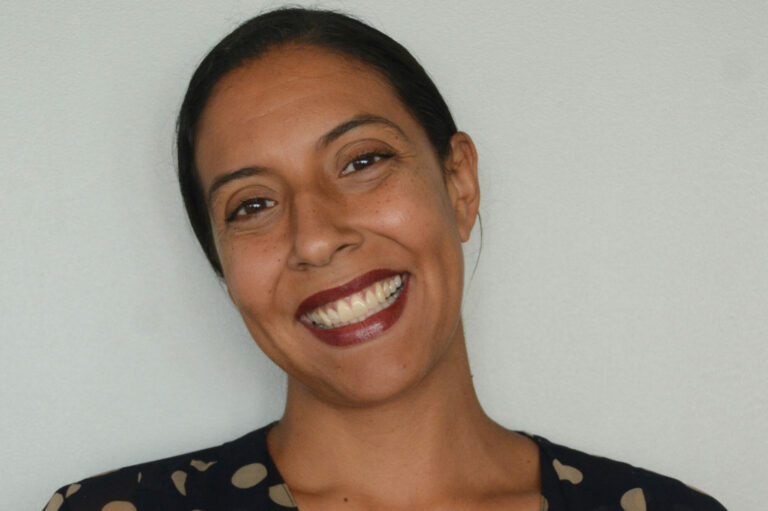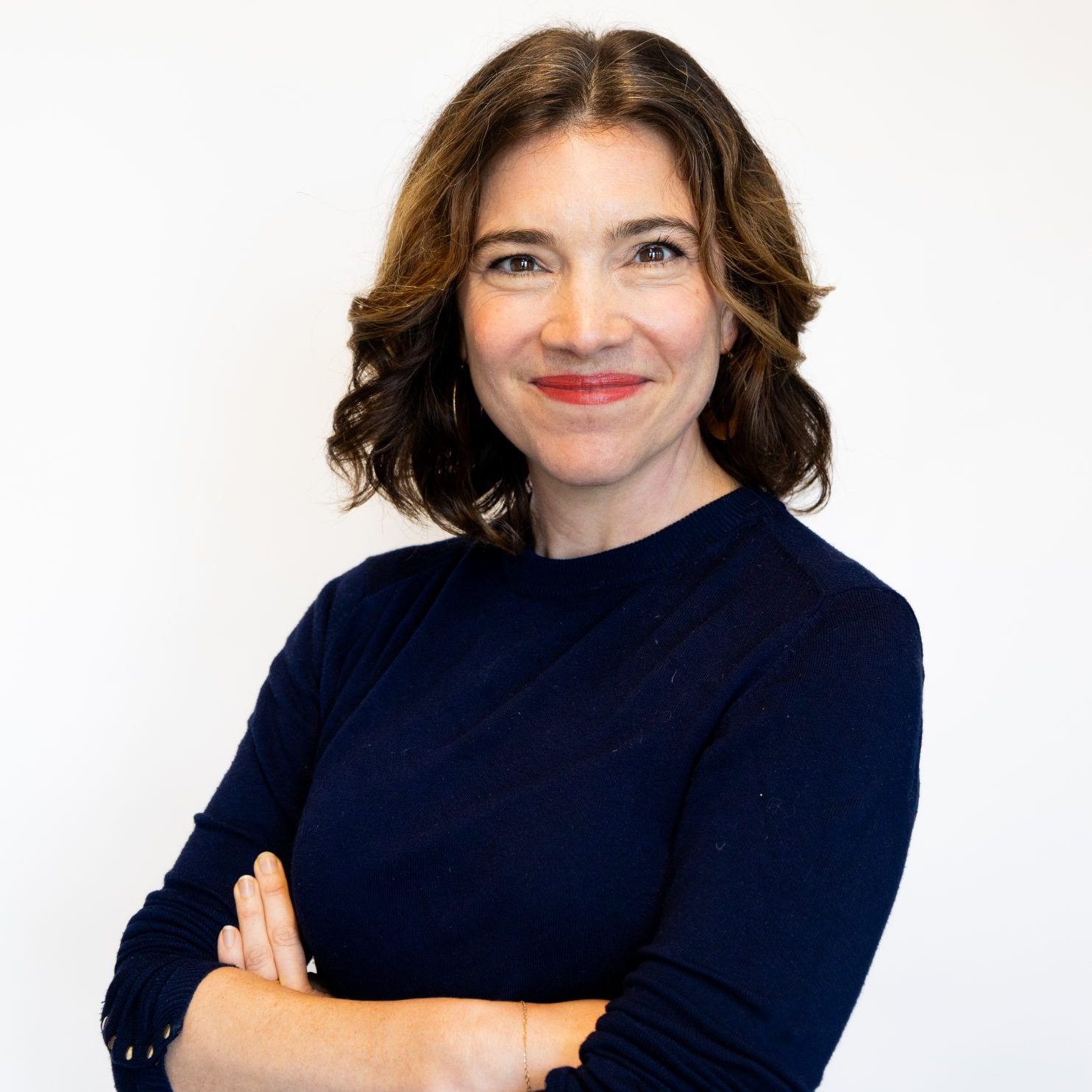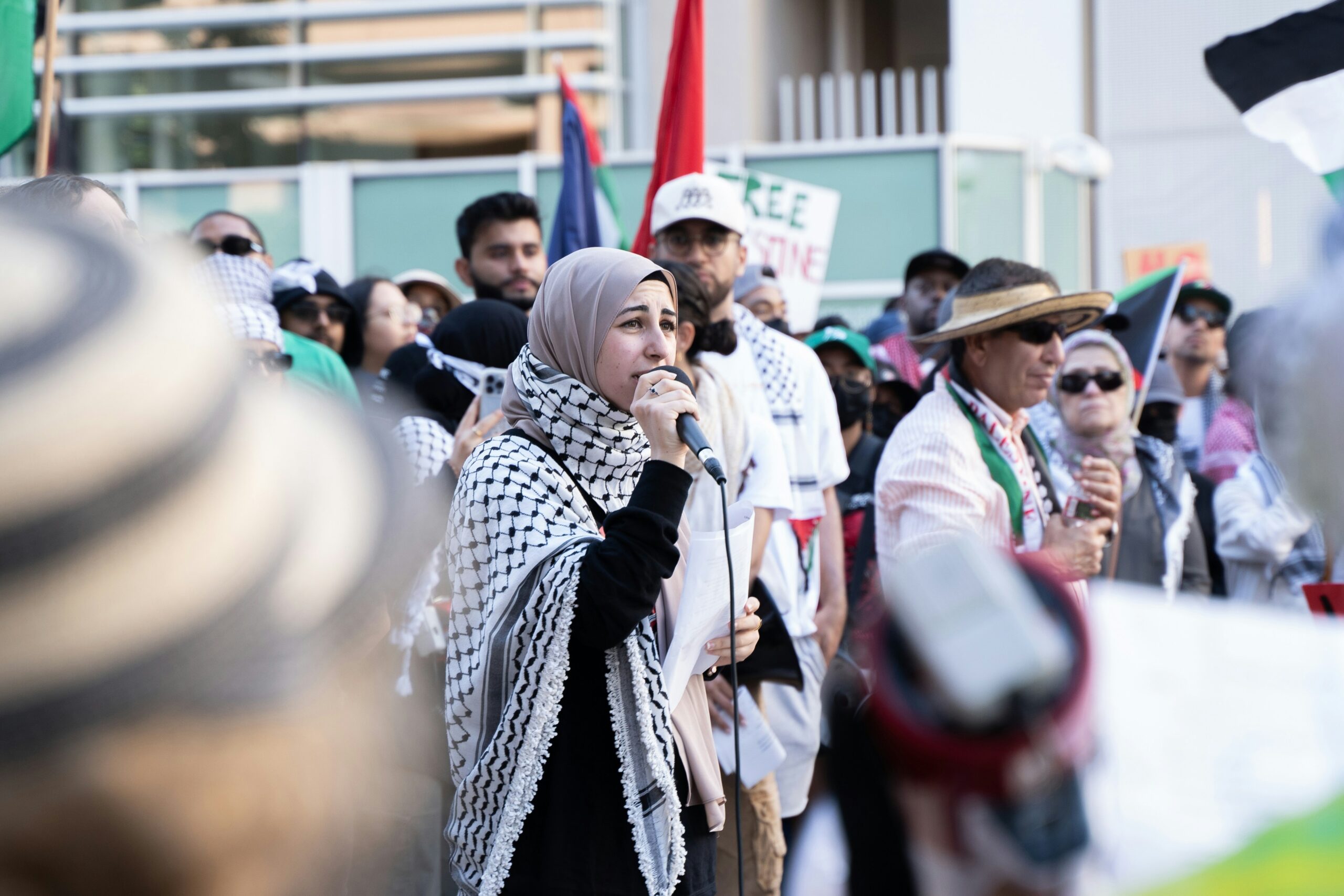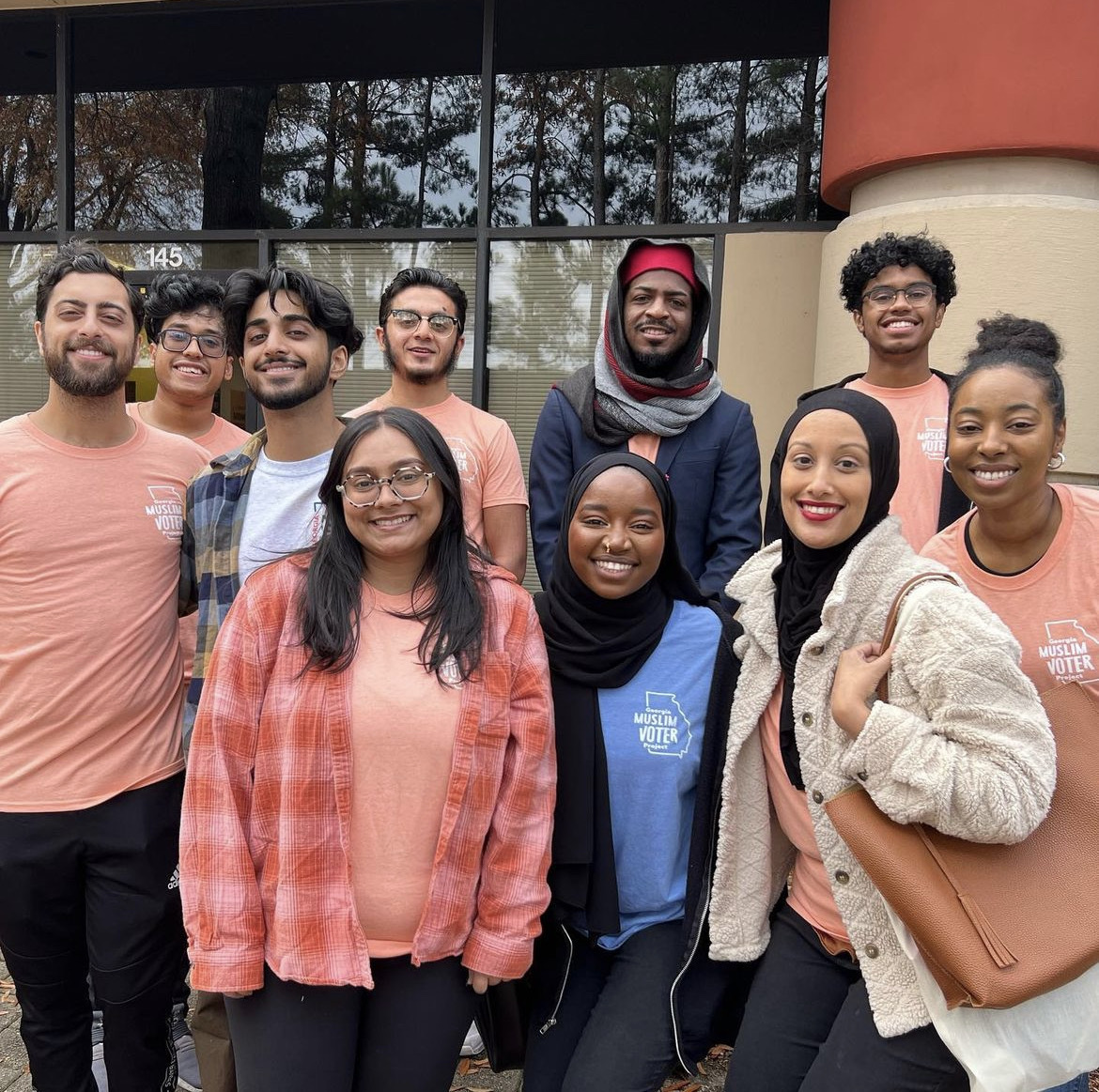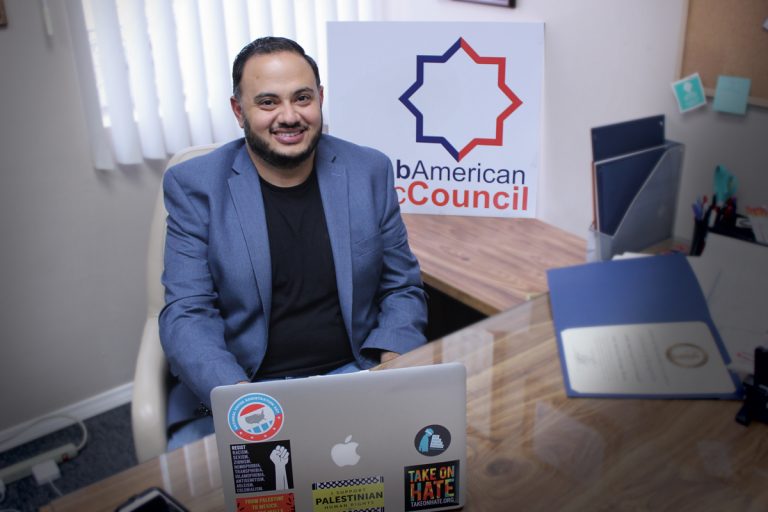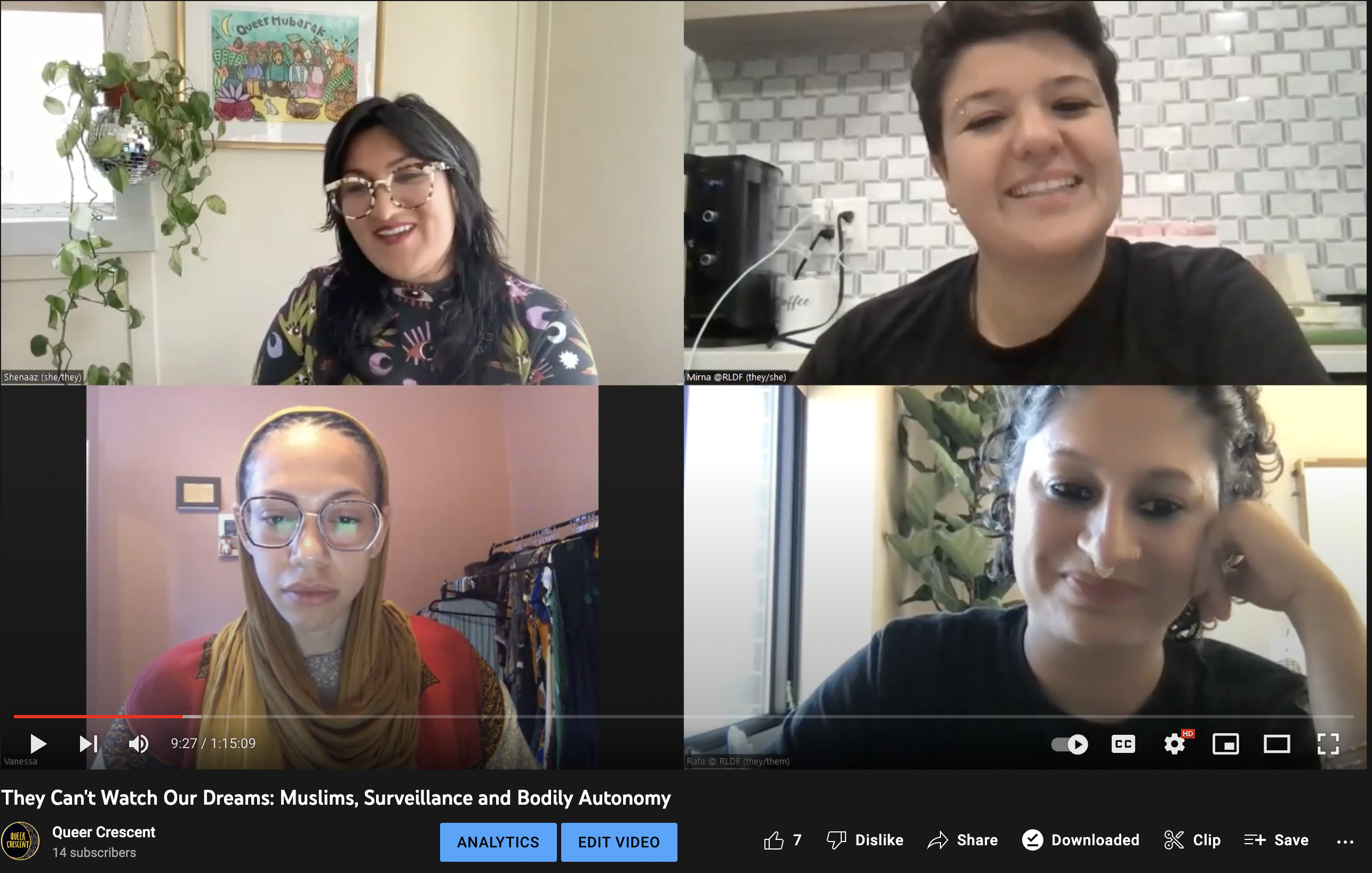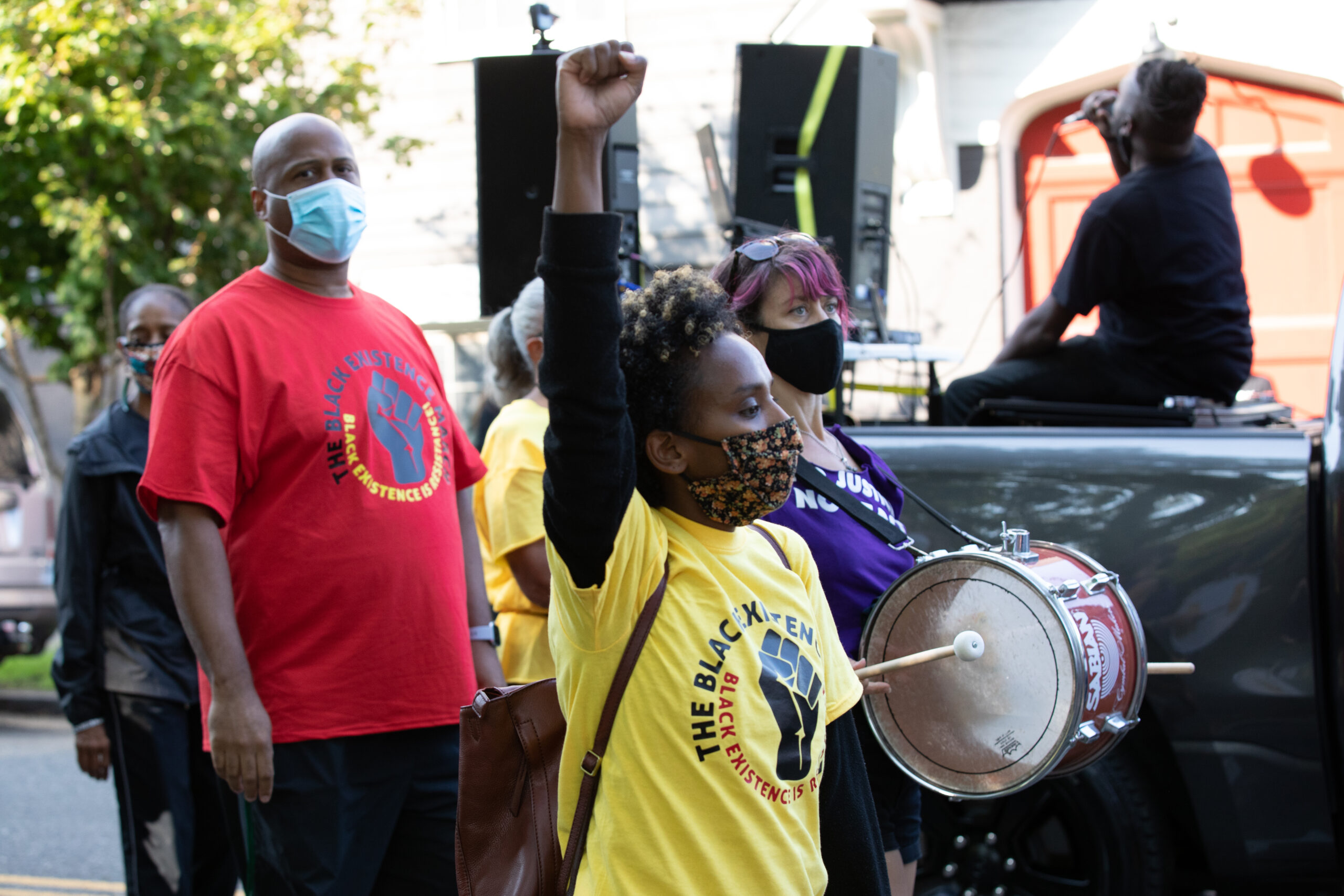RTF’s impact is underpinned by the support and commitment of its donor partners. Recently, Heising-Simons Foundation’s Rose Cahn, a program officer for HSF’s Human Rights program, shared her thoughts on this longstanding partnership.
The Human Rights program at the Heising-Simons Foundation has supported the Rise Together Fund (RTF) since 2019. We were immediately inspired by RTF’s mission of supporting organizing, leadership development, and power-building within the Black, African, Arab, Middle Eastern, Muslim, and South Asian communities as a path to, and an essential component of, challenging broader systems of racism, surveillance, and criminalization.
We appreciate how RTF’s vision embodies an understanding of intersectionality. Their big tent approach includes immigrants, LGBTQI+ people, women, and formerly incarcerated people, centering those who have been most harmed by cycles of violence and systems of oppression. RTF’s approach resonates with the Human Right program’s own strategy to support people and groups working to build power to challenge mass systems of criminalization and incarceration and reimagine what justice looks like in their communities.
For more than 40 years, BAMEMSA communities have been the targets of evolving state-sponsored campaigns of surveillance and criminalization designed to shut down, chill, and diminish an engaged and active civil society. Whether it is through weaponizing the tax code, politically motivated investigations, Congressional hearings, unchallenged media narratives, physical and digital threats, legislation to quell protest, or lawsuits, the goals are transparent: to isolate BAMEMSA groups and limit their ability to advocate effectively for the issues they care about.
Once honed, these same tools are then used against power building groups across the country as part of an authoritarian trend to impede progress toward a just, inclusive, and multiracial democracy. We see reproductive justice organizations, immigrant service providers, and organizers working to end mass incarceration investigated, sued, and attacked using tactics practiced and perfected against BAMEMSA organizations.
In the Human Rights program, we believe that defending and flanking communities who have been the most targeted and criminalized is essential to protecting the rights of all people. When we stand alongside groups, even when they are targets of funder retrenchment and vicious misinformation, we show that no people and no groups are disposable, and we help pave the path for a future where, in the words of RTF’s vision statement, “all people can live freely, lead fully, and participate joyously.” We know that resourcing BAMEMSA communities so that they can thrive will have benefits for all communities working to dismantle oppression and reimagine justice.
RTF is unique among intermediaries in its proximity to its grantees. They are not solely grantmakers, but true partners to, and members of, the groups and communities they fund. We know that it would be impossible for us—a national funder with a diverse portfolio—to replicate the depth of RTF’s expertise and relationships within power building BAMEMSA groups.
It is not just who they are, but it is also how they move that makes RTF unique. They ensure their grantees are resourced, not only with general operating support grants, but also with tailored capacity and infrastructure support to assure the longevity of a vibrant and engaged BAMEMSA community. When groups face emergencies, they contact RTF because they know RTF will respond with compassionate and considered support. As BAMEMSA groups have faced increased opposition, RTF has initiated rapid response funding designed to address groups’ pressing and emergent needs. When I make a grant to RTF, I know that the money will go to the groups that need it the most and will be delivered with timeliness and trust.
Finally, RTF serves as an informed and deeply knowledgeable funder educator. Through docket meetings, written reports, convening presentations, and in-person meet-ups, they uplift emerging threats and opportunities, and identify trends that connect across silos and issues. I continually learn from the grounded expertise of RTF staff in ways that help inform my own grantmaking and allow me to make connections with other interest-aligned funders.
The Heising-Simons Foundation’s Human Rights program challenges systems of punishment and mass criminalization, which perpetuate structural racism in this country. To do this, we focus on: 1) building the power and capacity of the grassroots; 2) fostering justice reform and immigrant rights’ ecosystems that center the grassroots in their work; and 3) advancing reimagined approaches to safety, justice, and accountability.
Through these approaches, the Human Rights program aims to grow the power of the grassroots impacted by criminalization, dismantle incarceration and immigrant detention systems, and help build the world we want to see. RTF is an essential partner in this vision. By deeply resourcing power-building BAMEMSA groups who are tackling issues in their communities––ranging from LGBTQI+ representation in the Muslim community to tenant protections for refugees and immigrants––RTF helps create a nourished ecosystem that can dismantle interlocking systems of harm and build an inclusive and vibrant world in its stead.
